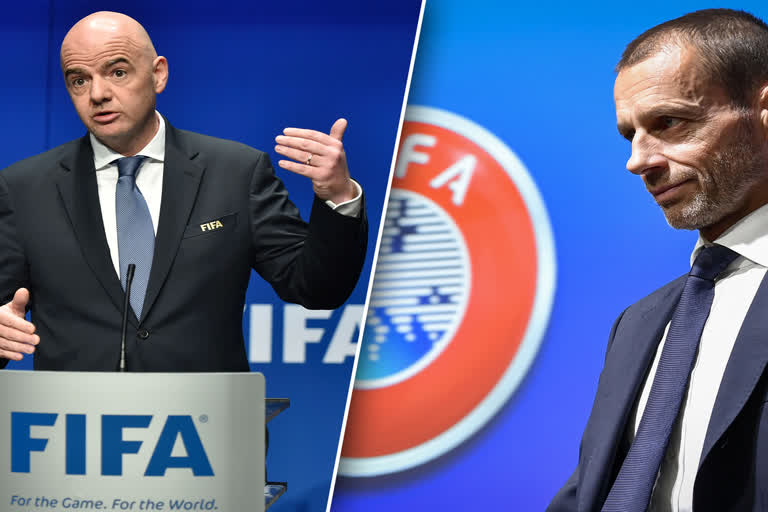London: Intensifying its opposition to FIFA's push for biennial World Cups, UEFA complained that Gianni Infantino's world body has yet to respond to its request for talks to discuss the concerns of European nations.
Infantino has been deploying retired players and former Arsenal manager Arsene Wenger in a campaign to win support for the overhaul of world football, which UEFA said is a sign of promotional campaigns of unilaterally pre-determined concepts rather than an open consultation process.
Doubling the frequency of World Cups would create significant disruption for club competitions, continental tournaments, including the European Championship, and existing global events like the Olympics.
UEFA is disappointed with the methodology adopted, which has so far led to radical reform projects being communicated and openly promoted before having been given, together with other stakeholders, the chance to participate in any consultation meeting," European football's governing body said in a statement.
More than a week after asking FIFA to organize a special meeting with them to be able to voice their concerns on the impact of such plans, UEFA said it to date not yet received a reply.
A day after that request, FIFA on Sept. 15 invited all 211 member associations to a general online summit on its plans.
Also Read:AFC welcomes FIFA initiative on two-year World Cup cycle
UEFA President Aleksander Ceferin has already said that Europe could boycott the World Cup if Infantino succeeds in securing approval for his plan from the FIFA Congress of all member associations. Most of those countries never get to play at the World Cup, which will feature 32 men's teams for the last time in 2022 before expanding to 48 nations in 2026.
There are real dangers associated with this plan, UEFA said in a statement after an executive committee meeting, the dilution of the value of the No. 1 world football event, whose quadrennial occurrence gives it a mystique that generations of fans have grown up with; the erosion of sporting opportunities for the weaker national teams by replacing regular matches with final tournaments; the risk to sustainability for players, forced to engage in summer high-intensity competitions every year instead of longer recuperation breaks in alternate years.
